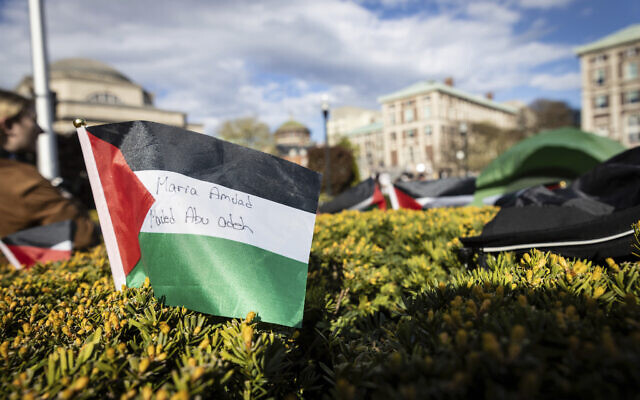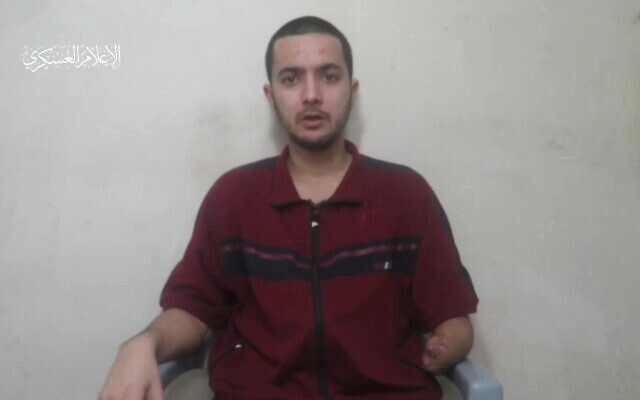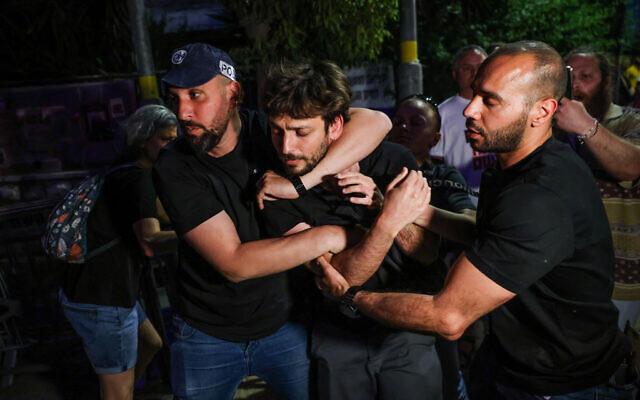Government seeks 11th hour-High Court extension to avoid mandatory Haredi conscription
State requests 12 more hours to respond to petitions, minutes after AG issues bombshell notice that authorities will be obligated within days to draft ultra-Orthodox yeshiva students
Jeremy Sharon is The Times of Israel’s legal affairs and settlements reporter
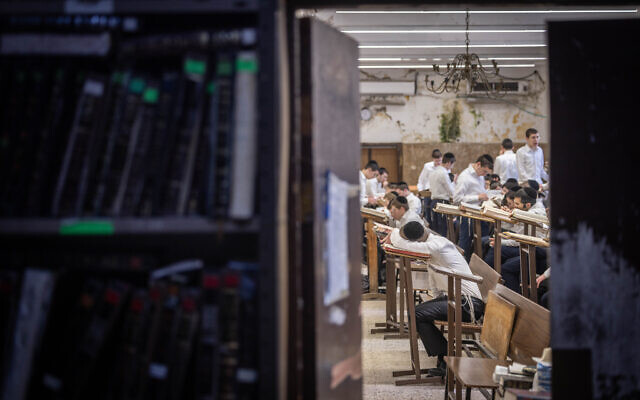
In a last-minute U-turn late Wednesday night, the government requested a half-day extension to the High Court’s deadline for filing a response to petitions demanding that it immediately start conscripting ultra-Orthodox yeshiva students.
The state’s request came just several minutes after a bombshell draft response had been issued by the Attorney General’s Office in which it told the High Court that come Monday morning, April 1, the state would be obligated to begin conscripting Haredi yeshiva students since there would no longer be any legal framework to avoid such a step.
This frenetic sequence of events developed due to the government’s failure to formulate a detailed and substantive proposal for increasing ultra-Orthodox military service enlistment by Wednesday, as it had promised the High Court it would do in response to the petitions demanding immediate conscription in order to comply with equality statutes.
The state asked for a new deadline of 2 p.m. Thursday by which to file its final response. Since it filed the request just several minutes before midnight, the court had not yet had a chance to respond.
“Taking into account the sensitivity of the matters and the need for many officials [to have input in] the draft, including the most senior officials, a short extension of one day is required to submit the response,” the state told the court late Wednesday night.
The Attorney General’s Office had just minutes beforehand disseminated to government departments a draft response to the High Court petitions, which asserted that the state would be obliged to begin conscription for ultra-Orthodox yeshiva students on April 1.
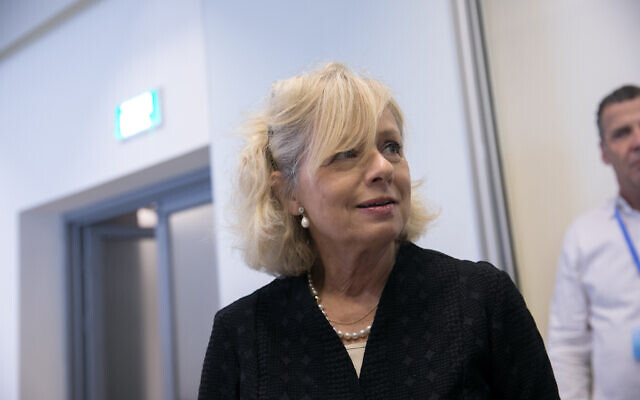
The state’s position — as determined by Attorney General Gali Baharav-Miara’s Office — was that since a government resolution delaying the initiation of conscription processes would expire at midnight on March 31, there would be no legal framework to avoid drafting young ultra-Orthodox men, who have long enjoyed blanket exemptions in order to study Torah.
The government was supposed to have drafted an outline proposal for a law that would lead to an increase in ultra-Orthodox enlistment and pass it as a government resolution by Wednesday in response to the petitions.
The coalition failed, however, to arrive at a consensus over the explosive issue due to the staunch opposition of the Haredi parties to the inclusion of conscription quotas in the slated legislation itself.
The state’s request for a short extension appears to indicate that there will be a last-gasp effort to formulate some kind of realistic proposal to show the court by that time.
In a strongly worded letter, Deputy Attorney General Gil Limon told Cabinet Secretary Yossi Fuchs that the proposals made by the government were flimsy, lacked professional input, and included “no legal opinion or documentation that could demonstrate how the government intends to formulate an arrangement that will lead to an increase in equal sharing of the military service burden.”
“This is particularly significant when the government is acting to increase the burden on the serving public — both conscripts and reservists — and at the same time seeks to further delay the enlistment of yeshiva students,” Limon continued, referencing government proposals to increase the length of service for conscripts and reservists.
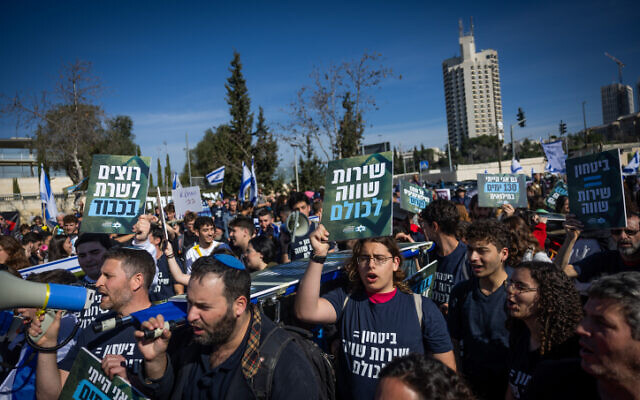
Because the government failed to formulate a substantive proposal, the attorney general’s initial, draft response to the court noted that not only was cabinet Resolution 682 allowing the state not to draft Haredi men about to expire, but that the government had not even stood by its commitment to present the court substantive proposals for tackling the issue.
“From the outset, government Resolution 682 was based on the premise of promoting legislation. Therefore, with the expiration of the resolution and in the absence of an alternative framework, as of April 1, 2024, no source of authority will exist that allows for the continued blanket avoidance of drafting yeshiva students,” wrote the Attorney General’s Office in its draft response to the court.
“In such circumstances, all authorized state officials will be legally obligated to act on conscription procedures for yeshiva students starting on April 1, 2024.”
The subsequent request for the half-day extension technically voided this response, but demonstrated that the attorney general appears completely unwilling to let the government off the hook and present the court with an insubstantial proposal just so that it can earn another three-month extension.
The current flurry of activity around ultra-Orthodox enlistment owes to petitions filed to the High Court last year challenging the legality of a cabinet resolution from June 25, 2023, in which the government instructed the IDF conscription authorities that “no procedures be taken to recruit of yeshiva students” until March 31, 2024.
The government passed that resolution because the law allowing for blanket military service exemptions — technically annual deferrals until the age of exemption — for Haredi yeshiva students was set to expire.
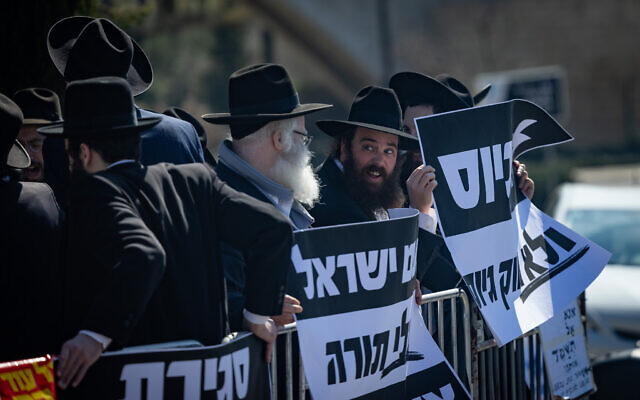
By March 31, the government was supposed to have found a way to comply with a court ruling from 2017, which determined blanket military service exemptions for ultra-Orthodox yeshiva students to be discriminatory and illegal. But it told the court in February it had been unable to do so because of the October 7 atrocities and the outbreak of war with Hamas in Gaza and Hezbollah in Lebanon.
The state said at the time that it needed more time to legislate such a law as a result of the war and said it would outline what the draft law would include by the end of March, and then request a further extension until the end of June to pass the legislation.
However, it apparently failed to abide by its own schedule once again, and it’s unclear how it will manage to put together a comprehensive outline that satisfies the Attorney General’s Office within 12 hours.
Most Jewish Israeli men are required to serve nearly three years followed by years of annual reserve duty. Many Jewish women serve two years. But the politically powerful Haredim, who make up roughly 13% of Israeli society, have traditionally received exemptions if they are studying full-time in a yeshiva or religious seminary. The exemptions — and the government stipends many yeshiva students receive through age 26 — have infuriated the wider general public.
That frustration has peaked since Hamas’s October 7 terror onslaught and the war that has ensued as other communities’ members are losing their lives in the IDF and are also being asked to expand their reserve service, as the threats facing Israel grow.
Defense Minister Yoav Gallant and Minister Benny Gantz — who with Netanyahu comprise the war cabinet — say the prime minister’s proposed law doesn’t go far enough toward increasing the number of Haredi young men who will join the army. Critics say some proposed aspects, such as raising the age of permanent exemption — now apparently dropped — could even depress the numbers.
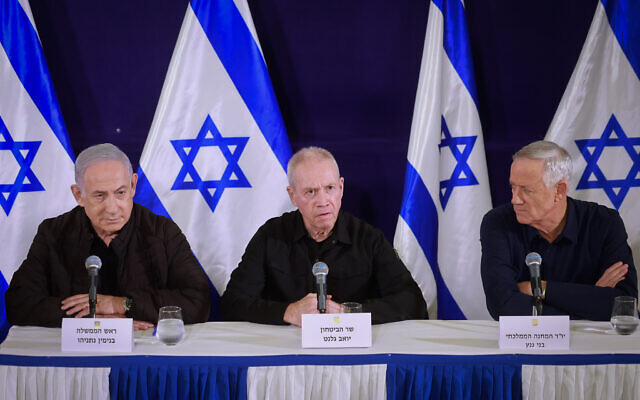
The government is composed of ultra-Orthodox and religious ultranationalist parties that were joined in the early days of the war by Gantz’s centrist National Unity party as a show of unity in the aftermath of October 7.
Among the Jewish majority, mandatory military service is largely seen as a melting pot and rite of passage. The Haredim say that integrating into the army will threaten their generations-old way of life and that their dedication to Torah study protects Israel as much as a strong army.
Economists say the system is unsustainable. With its high birthrate, the Haredi community is the fastest-growing segment of the population, at about 4% annually. Each year, roughly 13,000 Haredi males reach the conscription age of 18, but less than 10% enlist, according to the Knesset’s State Control Committee, which recently held a hearing on the matter.
According to the IDF’s Personnel Directorate, some 66,000 young men from the Haredi community received an exemption from military service over the past year, said to be an all-time record.
Agencies contributed to this report.




